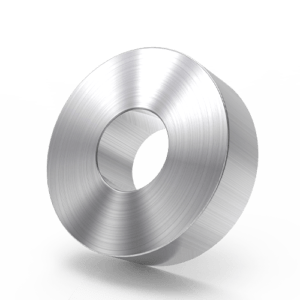Welcome to My Blog!
Before we dive into the content, I’d love for you to join me on my social media platforms where I share more insights, engage with the community, and post updates. Here’s how you can connect with me:
Facebook:https://www.facebook.com/profile.php?id=100090063158454
Now, let’s get started on our journey together. I hope you find the content here insightful, engaging, and valuable.
Introduction

Choosing the right stainless steel manufacturer is a critical decision for businesses across various industries, including construction, automotive, food processing, and pharmaceuticals. The quality of stainless steel products can significantly impact the overall performance and durability of your projects. This blog will delve into the essential factors to consider when selecting a stainless steel manufacturer, ensuring you make an informed choice that aligns with your specific needs.
Understanding Stainless Steel
What is Stainless Steel?
Stainless steel is an alloy primarily composed of iron, chromium, and sometimes nickel and molybdenum. It is renowned for its resistance to corrosion, high-temperature strength, and aesthetic appeal. The manufacturing process involves melting and mixing raw materials, followed by forming and finishing to create various stainless steel products. Understanding the composition and properties of stainless steel is crucial when selecting a manufacturer.
Types of Stainless Steel
Different grades and types of stainless steel serve various applications. The most common types include:
- Austenitic: Known for excellent corrosion resistance and formability.
- Ferritic: Offers good resistance to stress corrosion cracking and is magnetic.
- Martensitic: Known for high strength and hardness, often used in cutlery and tools.
- Duplex: Combines the best features of austenitic and ferritic stainless steel.
Each type has its unique properties and suitability for different applications, making it essential to choose a manufacturer that specializes in the grade you need.
Key Factors in Selecting a Stainless Steel Manufacturer
Experience and Reputation
The manufacturer’s experience in the industry can greatly influence the quality of the products they produce. An established stainless steel manufacturer with a solid reputation is more likely to deliver reliable and high-quality products. Look for companies that have been in business for several years and have a portfolio of successful projects.
Quality Assurance
Quality assurance processes are vital in ensuring that the stainless steel products meet industry standards. A reputable manufacturer will have certifications such as ISO 9001, which demonstrates their commitment to maintaining quality. It’s important to inquire about their quality control measures, including testing procedures and inspection protocols.
Range of Products and Services
Different projects require various types of stainless steel products. When selecting a manufacturer, consider the range of products they offer. Some manufacturers specialize in sheets, bars, pipes, or custom fabrication. Ensure that the manufacturer can meet your specific needs and offers additional services such as cutting, welding, or finishing.
Material Sourcing
The quality of stainless steel is highly dependent on the raw materials used in its production. A reliable manufacturer will source high-grade materials from reputable suppliers. It’s beneficial to ask about the origin of their raw materials and whether they comply with industry standards. Transparency in sourcing is a key indicator of a manufacturer’s credibility.
Technological Capabilities
Advanced manufacturing technologies can enhance the quality and precision of stainless steel products. Look for manufacturers that invest in modern machinery and technology, such as CNC machining and laser cutting. These technologies improve efficiency and ensure that products meet exact specifications.
Customer Support and Service
Effective customer support is crucial in building a long-term relationship with your stainless steel manufacturer. A manufacturer that offers excellent customer service can provide guidance on product selection, technical assistance, and after-sales support. Assess their responsiveness and willingness to address your queries during the initial interactions.
Pricing and Value
While pricing is an essential factor, it should not be the sole determinant in your decision-making process. Compare the pricing structures of different manufacturers, but also consider the value offered in terms of quality, service, and delivery timelines. The cheapest option may not always provide the best long-term value.
Summary of Key Factors
| Factor | Description |
|---|---|
| Experience and Reputation | Years in the industry and past projects |
| Quality Assurance | Certifications and testing protocols |
| Range of Products | Variety of stainless steel products available |
| Material Sourcing | Quality of raw materials used |
| Technological Capabilities | Modern machinery and manufacturing techniques |
| Customer Support | Responsiveness and assistance offered |
| Pricing and Value | Cost-effectiveness and long-term benefits |
The Importance of Industry Standards
Certifications to Look For
When evaluating a stainless steel manufacturer, it’s crucial to consider their adherence to industry standards. Certifications can provide assurance of quality and safety. Key certifications include:
- ISO 9001: Ensures consistent quality management practices.
- ASTM: Standards for materials and testing.
- ASME: Standards for pressure vessels and piping.
- NACE: Corrosion engineering and materials.
These certifications indicate that the manufacturer meets specific industry requirements, which can be particularly important for projects in critical sectors like aerospace, automotive, and pharmaceuticals.
Environmental Considerations

Sustainability Practices
As industries move toward more sustainable practices, it’s essential to consider the environmental impact of the stainless steel manufacturer you choose. Look for manufacturers that prioritize sustainability in their operations, such as:
- Recycling initiatives: Use of recycled materials in production.
- Energy-efficient processes: Implementing technologies to reduce energy consumption.
- Waste management practices: Minimizing waste generation and promoting recycling.
Choosing a manufacturer with sustainable practices not only benefits the environment but can also enhance your company’s reputation.
Conclusion
Selecting the right stainless steel manufacturer is a multifaceted decision that can impact the success of your projects. By considering factors such as experience, quality assurance, product range, material sourcing, technological capabilities, customer support, and pricing, you can make an informed choice that meets your specific needs.
In today’s competitive landscape, investing time in researching and evaluating manufacturers will pay off in the long run. A reliable manufacturer will not only provide high-quality products but also serve as a valuable partner in your business endeavors.
FAQ
How do I assess the experience of a stainless steel manufacturer?
Look for their years in business, the projects they’ve completed, and customer testimonials or case studies.
What certifications should a stainless steel manufacturer have?
Key certifications include ISO 9001, ASTM, ASME, and NACE, which indicate adherence to quality and safety standards.
Can I request custom stainless steel products?
Yes, many manufacturers offer custom fabrication services to meet specific project requirements.
What should I do if I encounter quality issues with my stainless steel products?
If you experience quality issues, first contact your stainless steel manufacturer to discuss your concerns. They should have a warranty or return policy in place. Providing documentation, such as purchase orders and photos of the issues, can help facilitate a resolution.
How can I ensure timely delivery from my stainless steel manufacturer?
To ensure timely delivery, establish clear communication with your stainless steel manufacturer regarding deadlines and expectations. Discuss lead times during the ordering process and consider setting up regular check-ins to monitor progress on your order.
